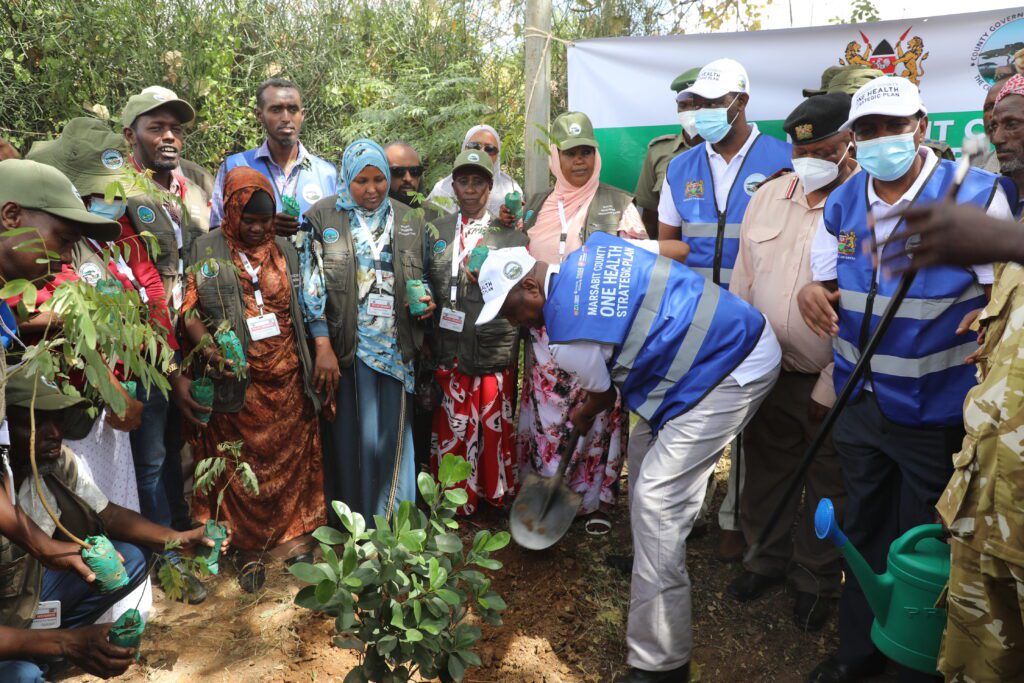Marsabit County marked a historic milestone on December 19, 2024, with its One Health Strategic Plan launch for 2024–2029. The event, held in Moyale town, Moyale Sub-County, brought together stakeholders from the county government, non-governmental organizations, and local communities to unveil a comprehensive strategy to address the interconnected health challenges of humans, animals, and the environment.
The strategic plan is the result of extensive collaboration between the County Government of Marsabit and partners such as Amref Health Africa, PACIDA, Malteser International, and CRS/Core Group. This approach recognized the pressing need for integrated health solutions in a region where zoonotic diseases, environmental degradation, and climate change present significant challenges.
The day’s activities highlighted Marsabit’s holistic approach to health. H.E. Governor Mohammud M. Ali, EGH, officiated the event, planting a symbolic tree to mark a greener future and flagging off newly acquired ambulances that will enhance healthcare delivery across the county. These gestures underscored the plan’s dual focus on immediate health system strengthening and long-term environmental sustainability.


Speaking at the launch, Marsabit Governor emphasized the urgency of adopting the One Health approach. He described the initiative as not just a plan but a shared responsibility that integrates health, environmental conservation, and sustainable practices. The Governor highlighted the lessons learned from past outbreaks of zoonotic diseases such as Rift Valley Fever, noting that such crises underscore the importance of coordinated action across sectors.
Dennis Kinyua from Amref Health Africa reaffirmed the organization’s dedication to supporting Marsabit’s efforts. He commended the county’s proactive stance in addressing health challenges through a holistic framework. “This plan represents a significant step toward building healthier and more resilient communities. It demonstrates the power of collaboration in fostering harmony between people, animals, and their ecosystems,” he remarked.
The One Health Strategic Plan has several key objectives, including enhancing disease surveillance, strengthening response mechanisms, and promoting collaborative research. It also aims to integrate environmental health initiatives, acknowledging the impact of deforestation and climate change on increasing human-animal interactions. To achieve these goals, the plan outlines activities such as public awareness campaigns, mobile veterinary clinics, and environmental health drives. These initiatives are designed to improve health outcomes while fostering a deeper understanding of the interconnectedness of health at the community level.
The launch event was a vibrant showcase of Marsabit’s commitment to this groundbreaking initiative. Activities included health and veterinary outreach services, educational talks on zoonotic disease prevention, and the official unveiling of the strategic document. Participants emphasized the importance of sustained partnerships and collective action to ensure the plan’s success.
This strategy not only addresses current health challenges but also lays the groundwork for a sustainable future. By integrating human, animal, and environmental health, Marsabit County is setting an example for holistic health governance that could inspire similar efforts across Kenya and beyond.
Blessings Ngode – Communications Intern, Amref Health Africa in Kenya
